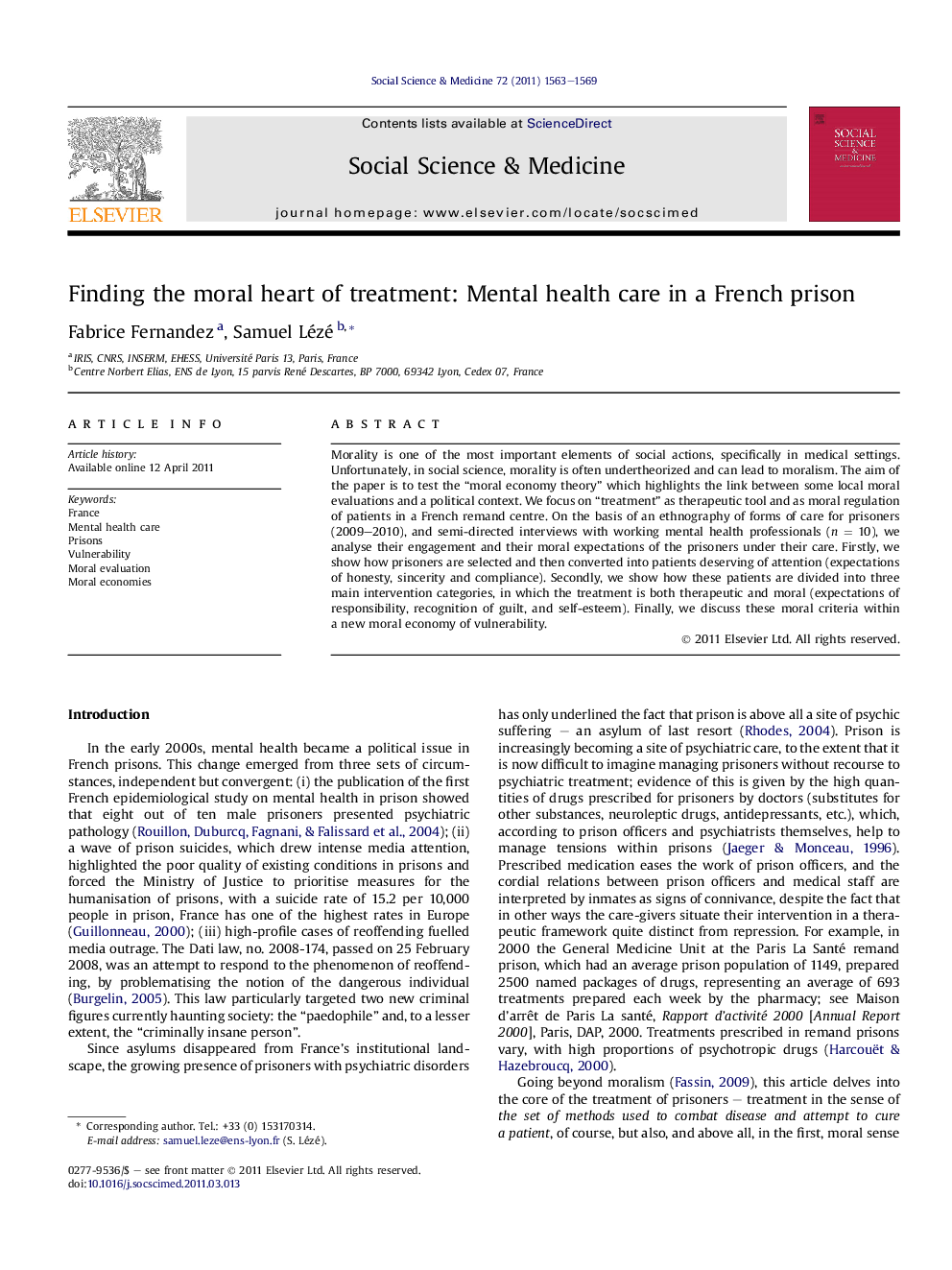| Article ID | Journal | Published Year | Pages | File Type |
|---|---|---|---|---|
| 952599 | Social Science & Medicine | 2011 | 7 Pages |
Morality is one of the most important elements of social actions, specifically in medical settings. Unfortunately, in social science, morality is often undertheorized and can lead to moralism. The aim of the paper is to test the “moral economy theory” which highlights the link between some local moral evaluations and a political context. We focus on “treatment” as therapeutic tool and as moral regulation of patients in a French remand centre. On the basis of an ethnography of forms of care for prisoners (2009–2010), and semi-directed interviews with working mental health professionals (n = 10), we analyse their engagement and their moral expectations of the prisoners under their care. Firstly, we show how prisoners are selected and then converted into patients deserving of attention (expectations of honesty, sincerity and compliance). Secondly, we show how these patients are divided into three main intervention categories, in which the treatment is both therapeutic and moral (expectations of responsibility, recognition of guilt, and self-esteem). Finally, we discuss these moral criteria within a new moral economy of vulnerability.
